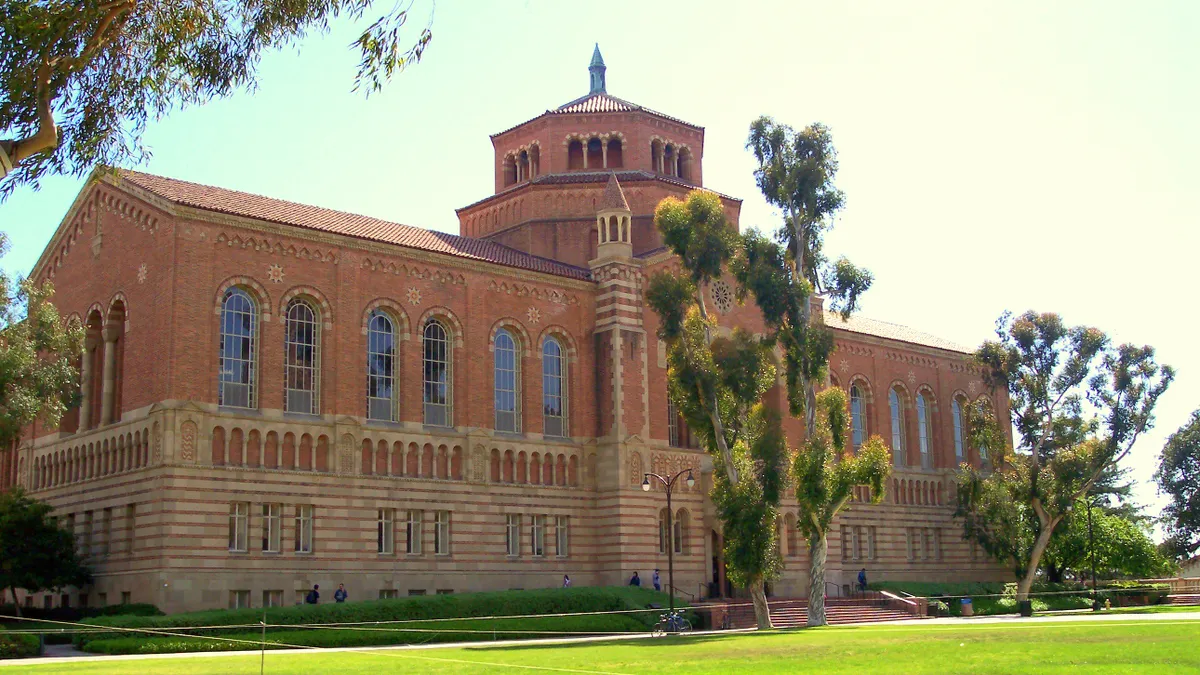Dive Brief:
- The University of California System authorized a systemwide audit to identify "risk(s) related to foreign influence" at programs run with federal grants, the institution confirmed this week in an email to Education Dive.
- Evaluating various categories of federal grants, UC's audit will seek to identify factors that contribute to higher levels of risk related to foreign influence. It will also review grants for compliance with requirements designed to limit those risks, said Sarah McBride, a UC System spokesperson, in the email. She noted that further details could not be shared "as this audit has just been approved."
- The audit follows a federal crackdown on foreign funds to universities and intelligence warnings about foreign scholars' theft of intellectual property and research. The Massachusetts Institute of Technology and the University of Virginia have also stepped up vigilance on sensitive projects.
Dive Insight:
The UC System's board of regents authorized the audit following a Feb. 7 letter sent by President Janet Napolitano to chancellors of all 10 UC campuses that said, "our university community must address national security concerns while protecting the principles of academic freedom."
In another February memo, university staff and faculty were told the institution "must be careful to comply with U.S. laws and regulations that govern how international engagements are managed and reported."
UC is particularly vulnerable from the standpoint of national security agencies and because of the U.S.'s ongoing trade war with China.
Nearly 25,000 students from China attended UC campuses last fall, accounting for just over half of all international students in the U.S., according to the Los Angeles Times. Additionally, "the UC system has a huge research portfolio especially dependent on federal agencies for research funding," said Philip Altbach, director of the Center for International Higher Education at Boston College, in an interview with Education Dive.
And UC's audit may spur other universities to follow suit.
"In the current climate they are probably worried they will get audited by federal grant-giving institutions," he said.
Federal agencies have told colleges and universities around the country to step up vigilance on programs run with federal grants as well as on donations and gifts from foreign sources. The goal is to ensure there is no propagandist influence from other countries and no theft of research and intellectual property that could pose a risk to national security.
Last week, FBI Director Christopher Wray testified before the Senate Judiciary Committee that China has "created pipelines" at U.S. universities to steal key intellectual property. In February, a Senate subcommittee report roundly criticized the Ed Department for "a glaring lack of oversight" on foreign funds to American universities.
In response, the Ed Department in June began investigations into foreign gifts to four universities: Cornell, Georgetown, Rutgers and Texas A&M. And last August, the National Institutes of Health said care must be taken to ensure there's no influence by "foreign entities" on research and peer review processes.
Still, Altbach said he's not in favor of piercing scrutiny of international students' work. That view was echoed recently by MIT President L. Rafael Reif in a letter to his campus.
"In managing these risks, we must take great care not to create a toxic atmosphere of unfounded suspicion and fear," Reif wrote.
Similarly, Altbach spoke about the possible effects of such an audit on the campus atmosphere.
"I think it's overkill and would create a not-so-pleasant atmosphere for foreign folks doing research on campus or even for Americans who do collaborative research with foreign colleagues," he said.
Most institutions already follow security protocols, he added.
"If they start hailing people into offices and start asking them questions," he said, "that would be an exceedingly bad idea."













